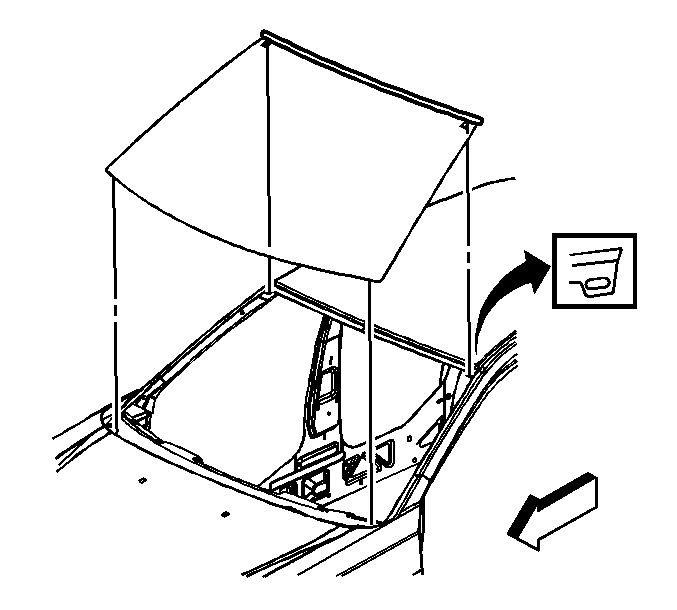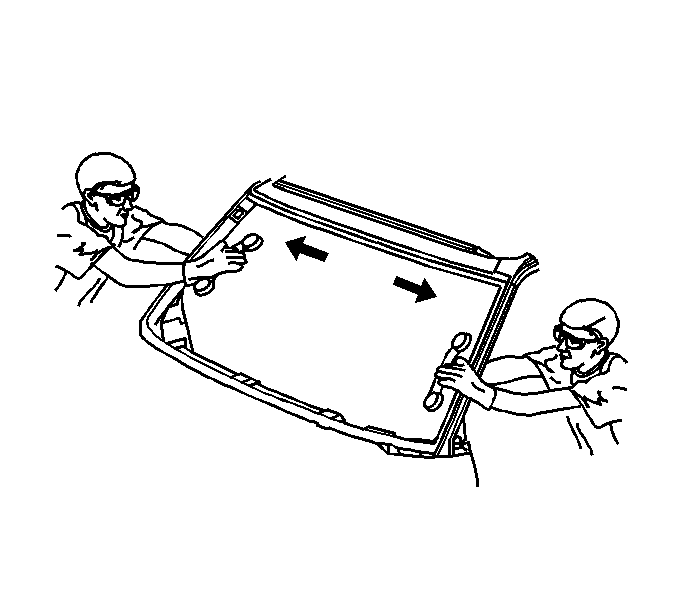Important: Before cutting out a stationary window, apply a double layer of masking tape around the perimeter of the painted surfaces and the interior trim.
- Open the hood.
- Remove the windshield wiper arms. Refer to
Windshield Wiper Arm Replacement
.
- Remove the air inlet grille. Refer to
Air Inlet Grille Panel Replacement
.
Caution: If broken glass falls into the defroster outlets, it can be blown into
the passenger compartment and cause personal injury.
- Cover the following parts to protect from broken glass:
| • | The defroster outlets and A/C outlets |
| • | The seats and carpeting |
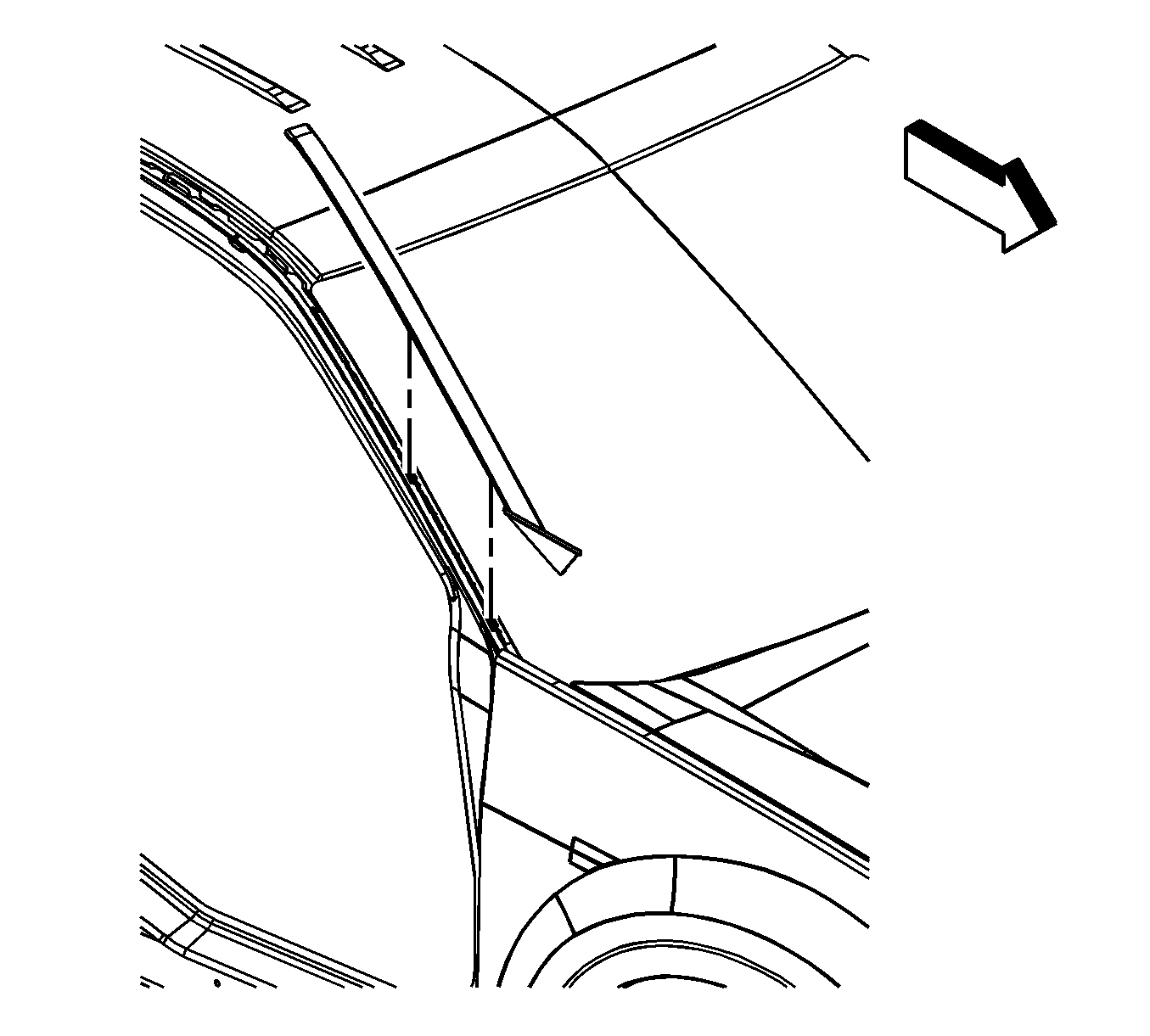
- Remove the windshield side reveal moldings. Refer to
Windshield Side Reveal Molding Replacement
.
- Remove the rearview mirror. Refer to
Inside Rearview Mirror Replacement
.
- Remove the interior windshield garnish moldings. Refer to
Windshield Pillar Garnish Molding Replacement
.
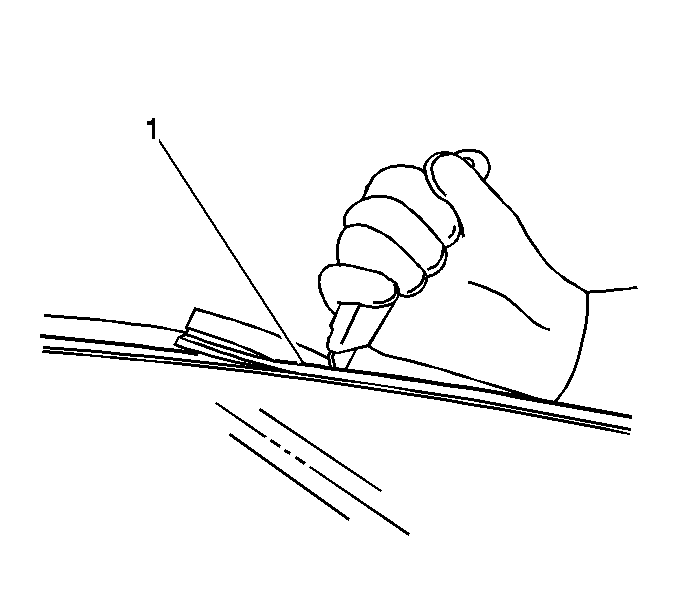
Caution: When working with any type of glass or sheet metal with exposed or rough
edges, wear approved safety glasses and gloves in order to reduce
the chance of personal injury.
Important: The upper windshield reveal molding is a one-piece molding and fills the cavities between the body and windshield.
The upper windshield reveal molding cannot be reused if the molding is stretched or damaged.
- Using a utility knife, carefully cut the upper flap (1) of the windshield reveal molding in order to access the urethane adhesive bead.
- Prior to cutting the urethane adhesive bead, apply 2 layers of masking tape on the body next to the windshield edge.
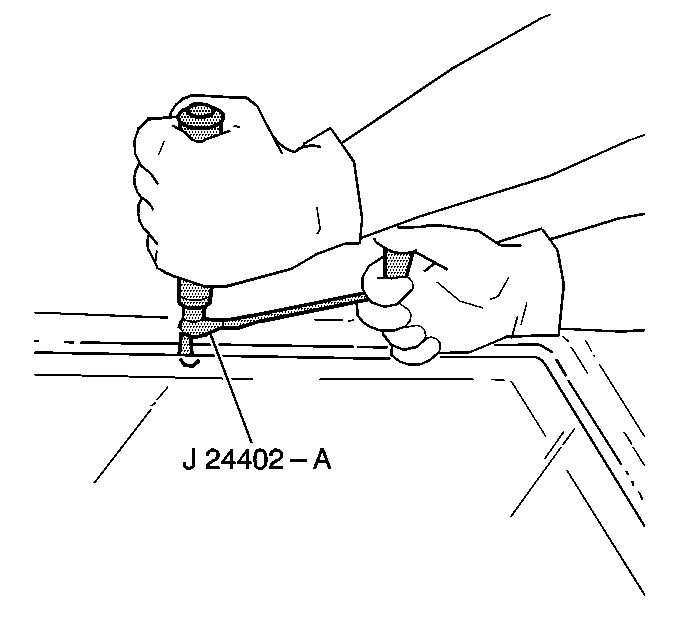
Important: Keep the cutting edge of the tool against the window.
- Separate the urethane adhesive from the window.
| • | Leave a base of urethane on the pinch-weld flange. |
| • | The only suitable lubrication is clean water. |
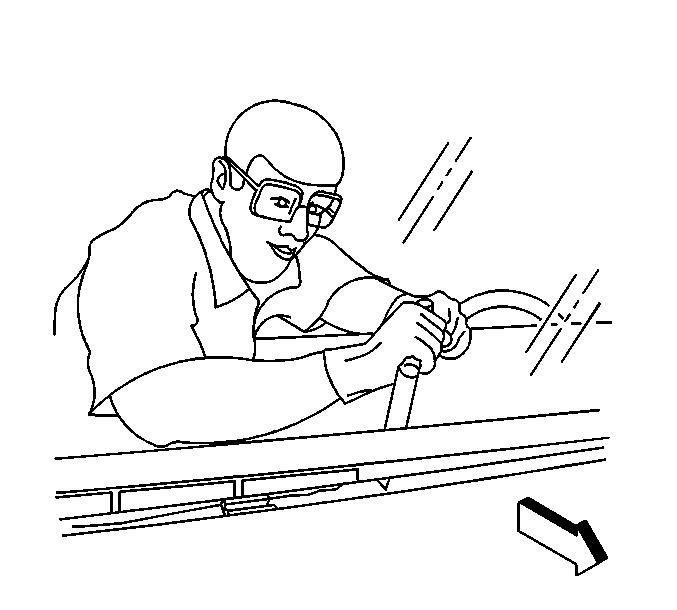
- Remove the bottom of the window from the urethane adhesive using a long utility knife or similar tool. Keep the cutting edge of the utility knife against
the glass. Do this from inside the vehicle.
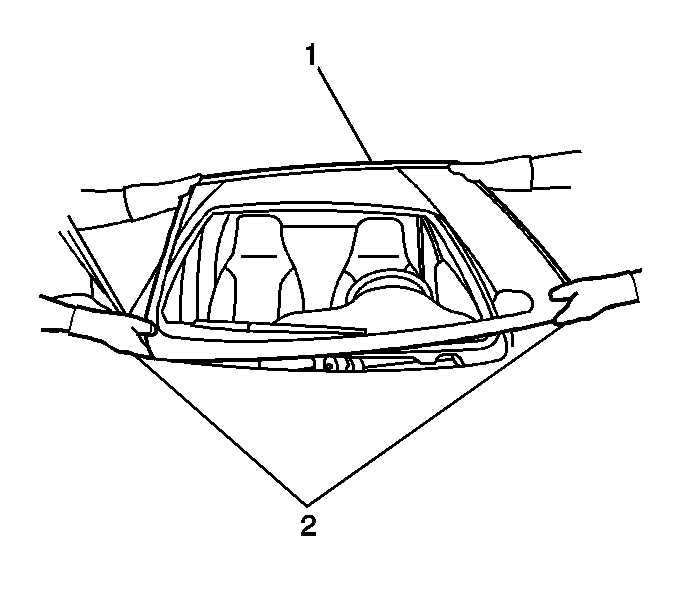
- With the aid of an assistant, remove the windshield (1) from the vehicle.





